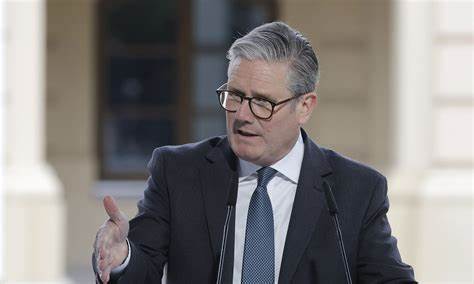WORLD

STARMER ANNOUNCES UK PLANS TO SET UP ‘RETURN HUBS’ FOR REJECTED ASYLUM SEEKERS
On Thursday, British Prime Minister Keir Starmer announced that the United Kingdom will start discussions with other nations to create “return hubs” for rejected asylum seekers, aiming to address the issue of irregular migration.
Speaking during an official visit to Albania, Starmer told GB News, “What now we want to do and are having discussions of… is return hubs, which is where someone has been through the system in the UK, they need to be returned… and we’ll do that, if we can, through return hubs.”
The Labour leader is facing growing pressure to curb the number of irregular migrants entering the UK, especially those making dangerous crossings of the English Channel in small boats.
This issue has become more urgent as the hard-right Reform UK party, led by outspoken anti-immigration advocate Nigel Farage, gains popularity.
During his two-day visit to the southeastern European nation, tackling illegal migration was a key priority.
The trip follows Starmer’s government, elected last year, abandoning a contentious plan introduced by the previous Conservative administration to deport undocumented migrants to Rwanda.
Earlier this week, Starmer announced a set of new immigration reforms focused on reinforcing border security in the UK.
The measures include reducing the number of overseas care workers, lengthening the required period before migrants can apply for settlement, and granting new powers to deport foreign criminals.
The Labour government had committed in its election manifesto to drastically reduce net migration, which reached 728,000 in the 12 months leading up to June 2024.
This followed a peak of 906,000 in 2023, a significant rise compared to the average of around 200,000 during most of the 2010s.
While legal migration has increased sharply, the UK has also seen record levels of irregular migration. According to an AFP tally based on data from the UK Home Office, over 12,500 people have crossed the English Channel so far this year.
"This represents a significant development in our ongoing coverage of current events."— Editorial Board









